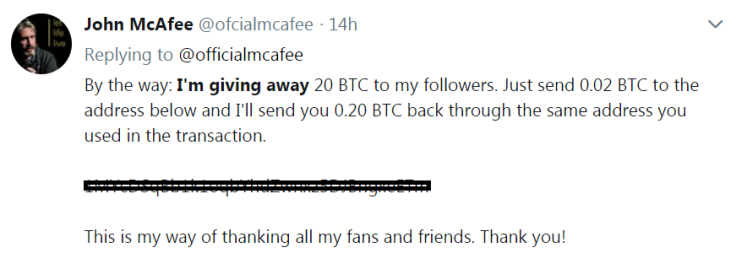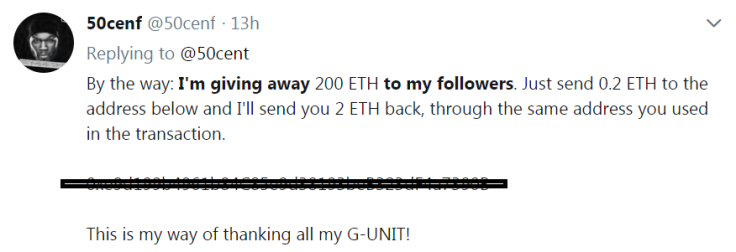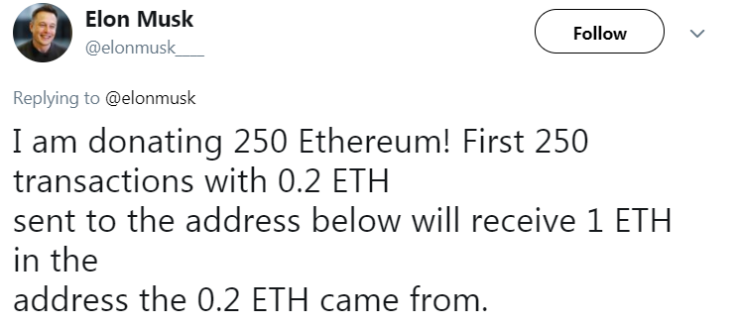Crypto scammers pose as John McAfee and Elon Musk on Twitter to steal bitcoin
'Giveaway offers' on bitcoin and ethereum from celebrities are too good to be true.

Cryptocurrency scammers are invading the Twitter timelines of technologists, celebrities and companies in an attempt to dupe fintech fanatics into sending them money.
This week, fraudsters' posts have been appearing directly under legitimate updates from Elon Musk, John McAfee, 50 Cent, Roger Ver and firms like Coinbase and CoinMarketCap. Scammers use similar usernames to the individuals in an attempt to appear real.
On Thursday (8 February), profiles were spotted spamming the accounts of McAfee and Changpeng Zhao, CEO of Binance, a cryptocurrency exchange that was suffering technical issues.
The lure is always a slight variant of the same pitch – a deal too good to be true.
"I'm donating 97 Bitcoin to my followers," one update read, posted under a real tweet by McAfee.
It continued: "First 250 transactions with 0.033 BTC sent to the address below will each receive 0.77 BTC to the address the 0.033 BTC came from. Claim your BTC now!"
The unknown individuals behind the scam are even creating fake profiles to 'like' fraudulent tweets and then respond to them claiming to have received the promised funds.
An update Thursday from an account posing as Musk, posted under a legitimate statement celebrating the Falcon Heavy rocket launch, was retweeted more than 200 times. According to Wired, the scheme has been going on since the start of February this year.
While many of the most recent tweets have been using bitcoin in the scam, another cryptocurrency called Ethereum is also be namechecked. Worse, it appears to be working.
As noted by Bleeping Computer, which tracked funds flowing into some wallets, the culprits have already made more than $6,000 from the scheme. The true figure is likely higher.
Many of the fraudulent accounts are quickly being suspended by Twitter, however a new account on the newly profitable social network can be set up in under a minute.
They are easy to spot. Warning signs include a low follower count and a Twitter handle that contains unnecessary letters or numbers. Most real profiles will have a 'verified' tick.
Of course, phishing-style attacks continue to be a major threat for those transferring money online. Users of major cryptocurrency exchanges have been duped for millions. But now, it seems that scammers can make a quick paycheck with a time-tested approach: asking nicely.

























